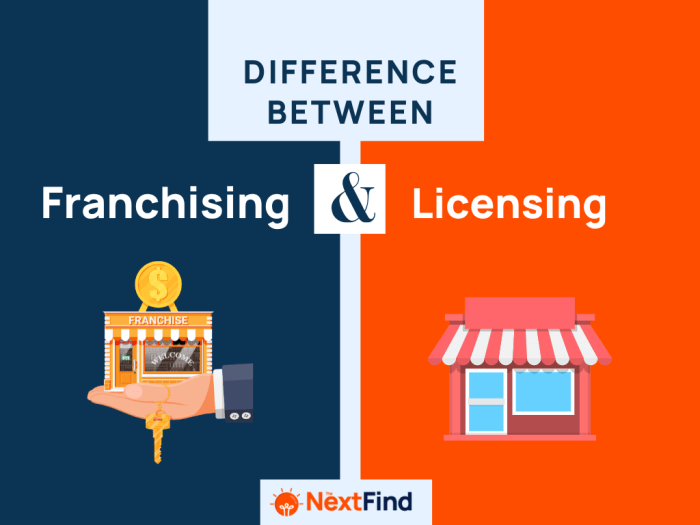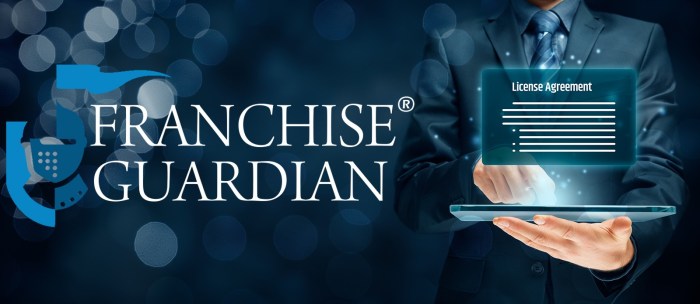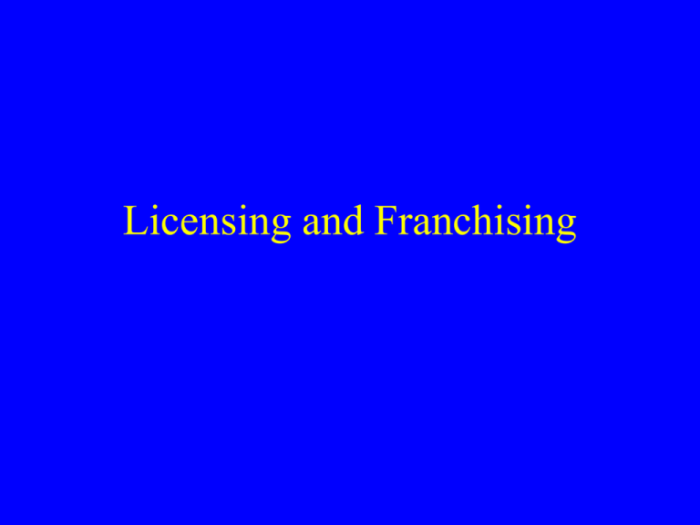In both licensing and franchising situations the licensee and franchisee – In both licensing and franchising situations, the licensee and franchisee play pivotal roles, each with distinct responsibilities and rights. This analysis delves into the similarities and differences between these two business models, examining their legal frameworks, financial implications, operational aspects, and growth potential.
Understanding the nuances of these arrangements is crucial for businesses seeking to expand their reach and leverage the benefits of licensing or franchising.
Defining the Roles of Licensees and Franchisees: In Both Licensing And Franchising Situations The Licensee And Franchisee

In both licensing and franchising arrangements, the licensee and franchisee play distinct roles within the business relationship. Licensees are granted the right to use specific intellectual property, such as trademarks, patents, or copyrights, for a specified period. Franchisees, on the other hand, are granted a comprehensive business model that includes not only intellectual property but also operational procedures, marketing strategies, and ongoing support.
Industries where licensing and franchising are common include:
- Retail
- Food and beverage
- Manufacturing
- Entertainment
- Education
The following table compares the key responsibilities and rights of licensees and franchisees:
| Responsibility/Right | Licensee | Franchisee |
|---|---|---|
| Use of intellectual property | Limited to specific terms of the license agreement | Comprehensive use of franchisor’s intellectual property |
| Operational control | Independent operation with limited franchisor oversight | Subject to franchisor’s standards and guidelines |
| Marketing and advertising | Responsible for own marketing efforts | Access to franchisor’s marketing and advertising materials |
| Training and support | Minimal or no training or support provided | Comprehensive training and ongoing support from franchisor |
| Revenue sharing | Typically a flat fee or royalty based on sales | Typically a percentage of sales or other performance-based fees |
FAQ Overview
What is the primary difference between licensing and franchising?
Licensing involves granting permission to use intellectual property, while franchising encompasses a broader range of rights and responsibilities, including operational control and marketing support.
How do the financial implications of licensing and franchising differ?
Licensing typically involves lower upfront costs and ongoing royalties, while franchising requires a higher initial investment but may offer greater revenue-sharing opportunities.
What are the key factors to consider when assessing the growth potential of a licensing or franchising business?
Factors to consider include the strength of the brand, market demand, competition, and the ability to effectively manage and support licensees or franchisees.


